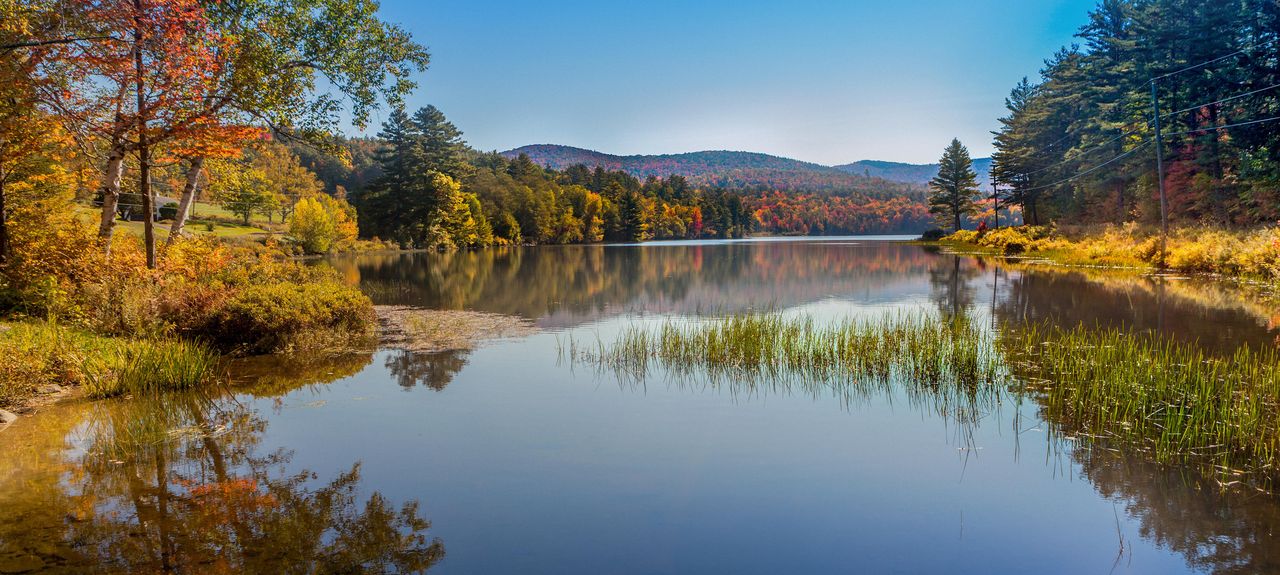
FRANCONIA NOTCH, N.H. -- Jeremy Belknap, credited with being the first American historian, said the natural beauty of this state had the ability "to soothe and to enrapture." Timothy Dwight, a Yale president who traveled among the peaks of New Hampshire more than 200 years ago, called the vistas here "sublime." Alden Partridge, sometimes known as the first extreme hiker, said the area "appeared to me so strangely illustrative of the original state of chaos."
Political campaigning here for the New Hampshire primary, site of the first primary of the 2020 presidential election, has begun to creep to its start, and already what prevails here has the air of the original state of chaos:
A dozen, maybe two dozen, possible Democratic candidates. Urgent questions about whether the party should lean left or hew to the center. Lingering thoughts that someone might challenge President Donald Trump in a Republican primary. And uncertainty about whether the man who has kept New Hampshire in the first spot in the primary parade will survive a challenge in the legislature in Concord.
Soon will begin the state's political "mating dance" -- a phrase coined by Democratic Sen. Jeanne Shaheen -- the period when presidential aspirants court political activists. Former Sen. Gary Hart, who ran here twice and won the 1984 primary, once told me that "these kinds of people base their decisions on a kind of idealism. Their choice doesn't have a lot to do with self-aggrandizement. The person who can motivate those people is the person who wins a contest like the New Hampshire primary."
Former Gov. Bruce Babbitt, a 1988 contestant, knew, as he put it, "New Hampshire politics are the politics of personal respect and influence. There aren't machines that can deliver like there are in Chicago."
Nor is there much tolerance here for what a storied New Hampshireman described as "corn-meal mush." Poet Robert Frost deplored political figures whose "first answerability" was to self-interest rather than the national interest.
"This New Hampshire primary thing is exciting and flattering, because you get phone calls from presidential candidates and they come to your house," Dudley Webster Dudley, a onetime Democratic state legislator, governor's councilor and congressional candidate, said in a conversation last week. "It's an important part of New Hampshire's culture."
Most if not all of the action is on the Democratic side, given that Trump has raised an enormous amount of money to underwrite his campaign for a second term. But just the other day, Gov. John Kasich of Ohio, an outspoken Trump primary rival in 2016 and a Trump critic in 2018, ventured into the state, meeting with old and new supporters in the state capital of Concord, speaking at a lunch with students at St. Anselm College in Manchester and speaking at a First Amendment event at Manchester's Palace Theatre.
One activist close to Kasich said the governor is unlikely to run, adding, "He wants to be relevant and in the conversation, just in case."
New Hampshire's first-in-the-nation presidential primary customarily comes eight days after the Iowa caucuses, where a similar ethos of intimate campaigning prevails. "We take our time to get to know the issues and the candidates," said Democratic state Rep. Mary Mascher of Iowa City. "We vet these candidates for the nation. It's one of our responsibilities, and we do it well."
Here in New Hampshire, civic responsibility is as much a part of the landscape as the Presidential Range. The results of presidential politics -- New Hampshire has an admirable but not infallible record of choosing winners -- bear out the virtue of outsourcing the vetting process to this idiosyncratic state.
Indeed, both Iowa and New Hampshire take presidential politics as their birthright, which is why an otherwise obscure legislative decision in Concord in less than two weeks has nationwide implications. That is when lawmakers vote for secretary of state. The incumbent, Bill Gardner, has held the job for 42 years, and in that time, he has been credited for being the guardian of the state's presidential primary, assuring that it comes first and beating back challenges from, among others, South Dakota, Nevada and South Carolina.
Being first in the primary parade is an important part of the state's character, for along with its reputation for flinty prudence, New Hampshire has a strain of Yankee chauvinism. More than a century ago, in Woodstock, Gov. Frank West Rollins spoke of the state's attributes, boasting, "Our cities show the mark of an improved taste, a better knowledge of art and architecture; our towns give more attention to neatness and cleanliness."
That they do. No presidential candidate dares say otherwise.
(COMMENT, BELOW)
David Shribman, a Pulitzer Prize winner in journalism, is executive editor of the Pittsburgh Post-Gazette.

 Contact The Editor
Contact The Editor
 Articles By This Author
Articles By This Author